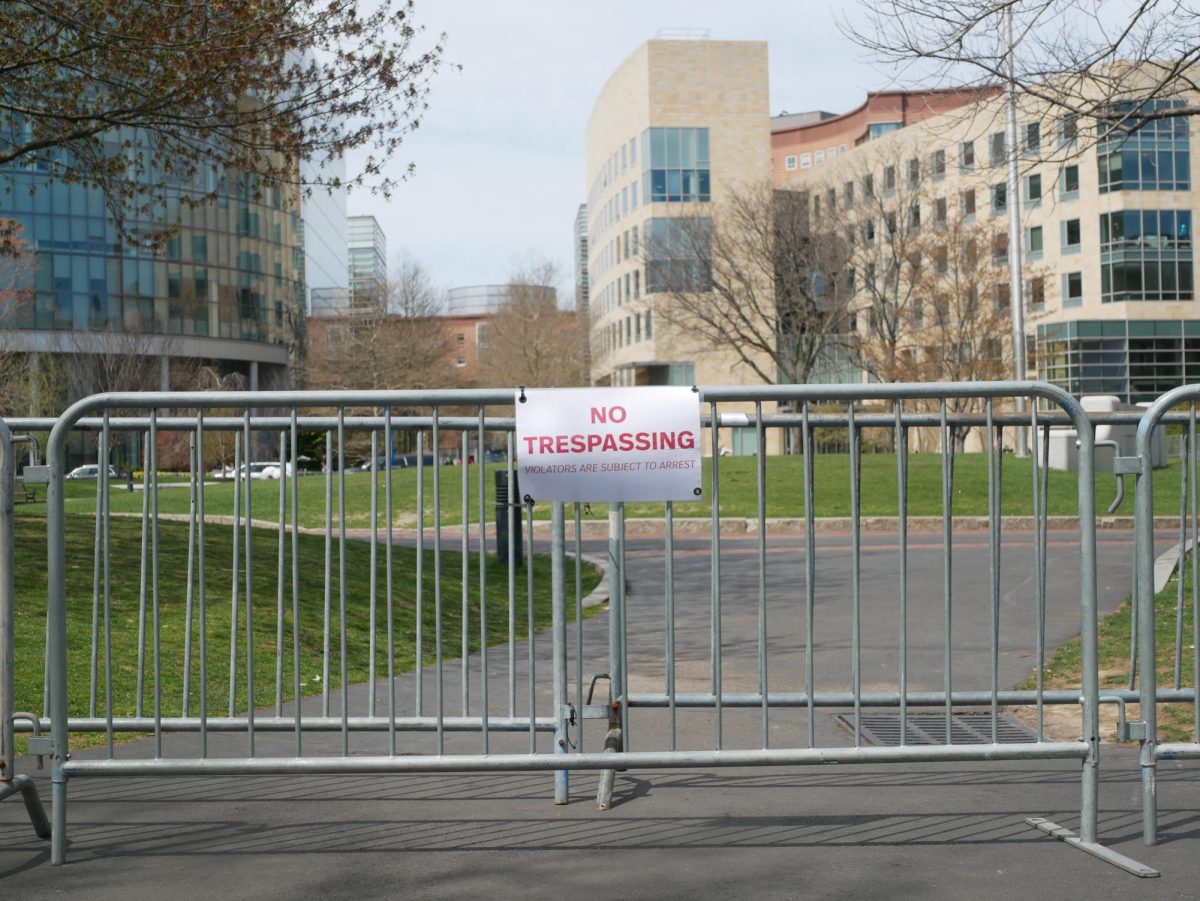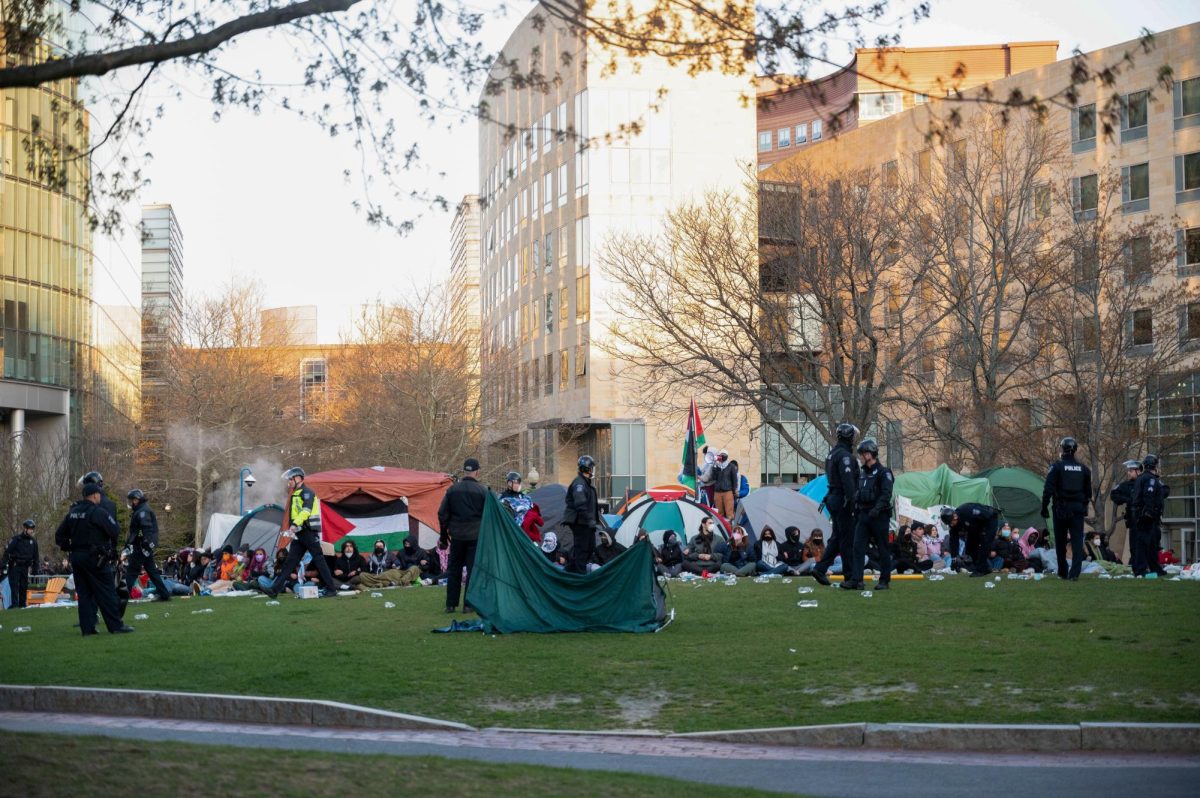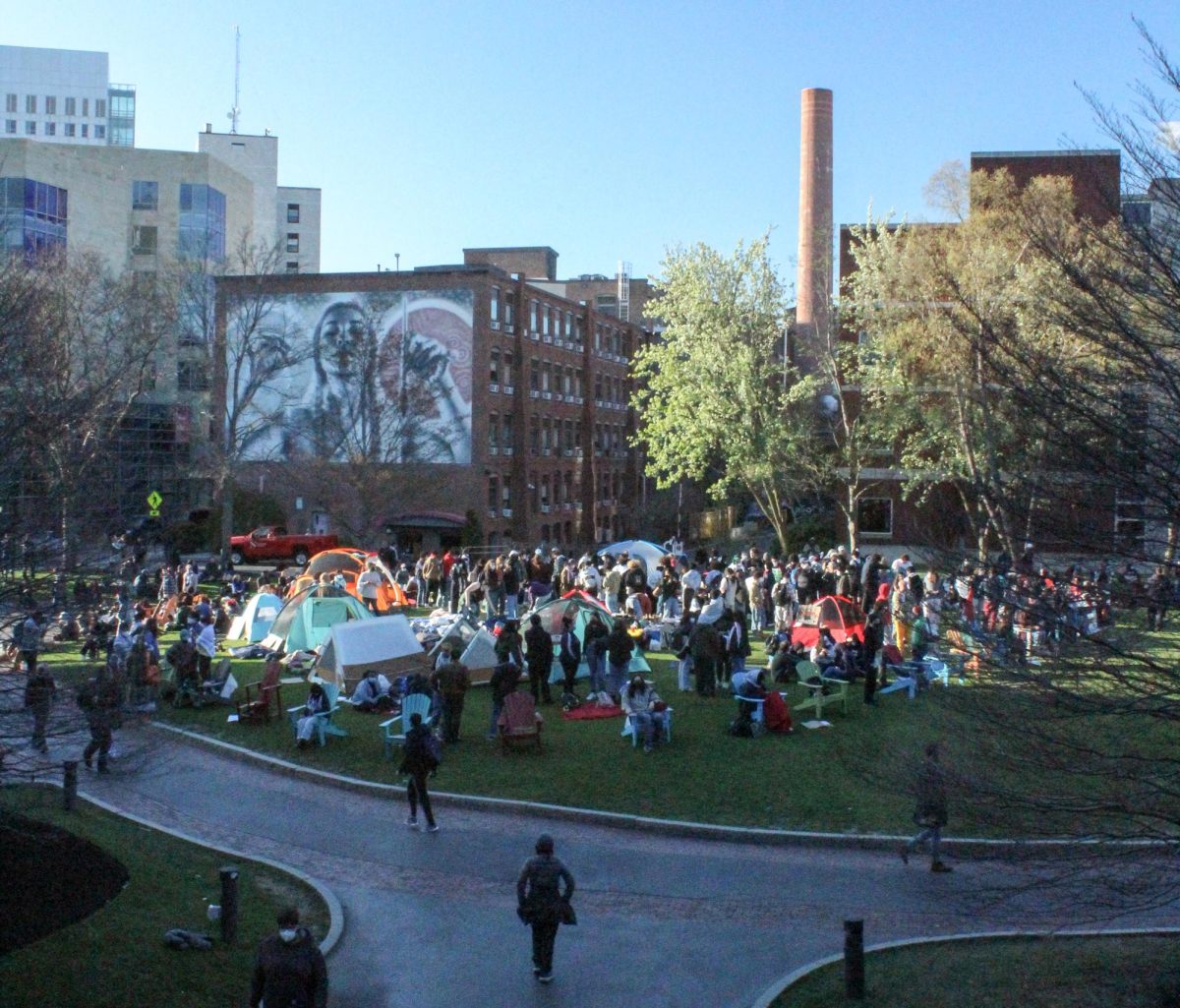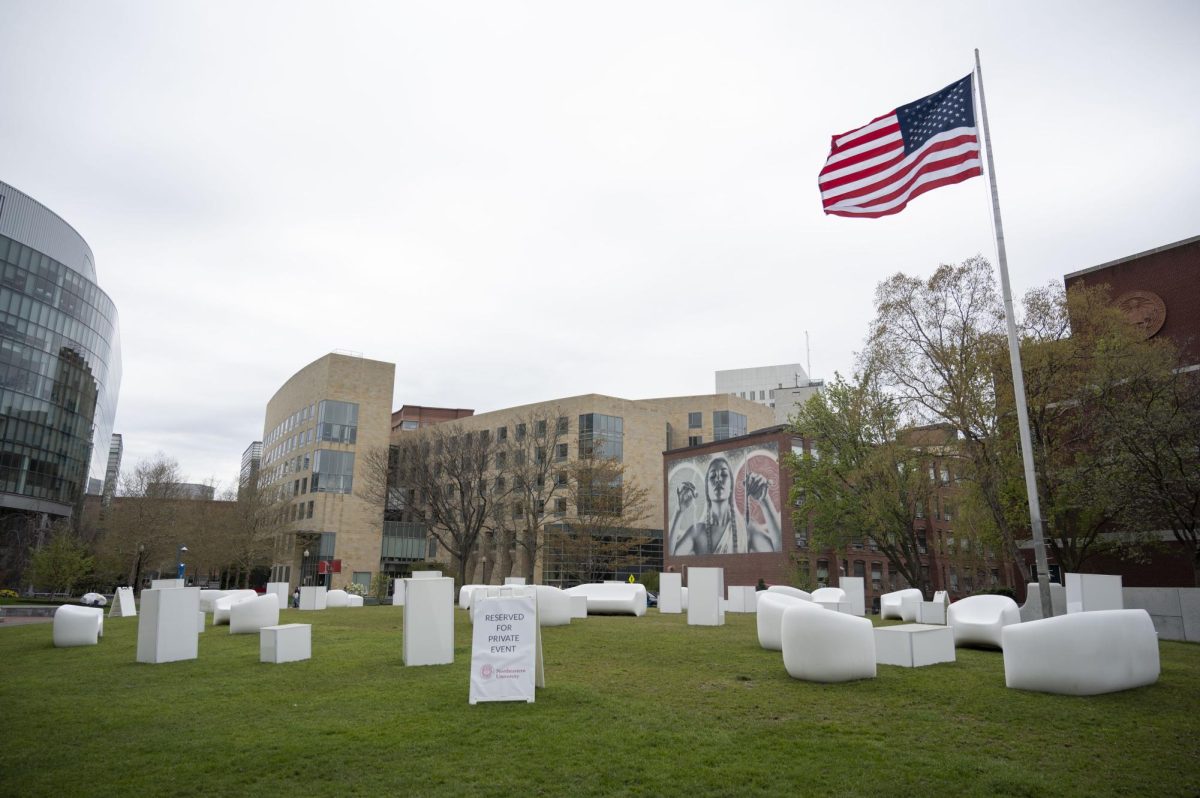When Richard Freeland’s title changed in the fall of 1996 to President Richard Freeland, the faculty and administration laid an issue out on the table for him: semester conversion.
The idea had been kicked around throughout the 1990s in Faculty Senate, and when President Freeland first met with the Senate, they expressed the need for a revamping of Northeastern’s calendar. Freeland said semester conversion was one of the first leadership initiatives that was presented to him, indicating the importance, but at first the idea did not quite stick.
“I worried at that time that this would become a sort of black hole of energy that would consume us for two to three years,” Freeland said. “So quite honestly I dragged my feet for the first couple of years.”
Finally, in 2000, the initiative took shape and the countdown for semester conversion, fall 2003, began.
“I realized that if we did it right, rather than being a diversion to the institution, focusing on the student would make it a better experience for the student. I think that is what really convinced me to do it,” he said. “I think by and large it is playing out the way I thought it would.”
Three years later — semester conversion has taken shape and Freeland says that semester conversion has proven to be an ideal way to strengthen Northeastern’s academic programs. Overall he said he is pleased with the work that has been done by college faculty and co-op advisors. Over the past three years, co-op has reassessed itself and has looked at ways to add value to the learning experience, though a lot is still to be implemented in the fall.
“I am pleased that they took the plunge. I am always confident we can do the administrative stuff,” Freeland said.
Though faculty and advisors were on-board with Freeland from the start, students were harder to convince.
“When we initially made the decision, there was a student referendum that went I think, 60-40 against semester conversion,” Freeland said.
“Generally speaking, a 60-40 vote is pretty much unanimous,” said Student Government President Richard Schwabacher. “I remember at that senate [in 2001], I abstained, but many were strongly against the conversion.”
Fast forward to today, T-minus four months and counting. Schwabacher said students may not be as vocal, but are not crazy about the conversion.
“I don’t think students are accepting it, they are being forced into it,” he said. “Students will have to work with it and have the best experience possible.”
Though Schwabacher said student senators that are working closely with the Semester Conversion Office have seen stand-out departments on campus, the real rush, he said, will come this fall once students are faced with the conversion head-on.
“Everyone who can wants to take summer classes; if they can avoid semester conversion and graduate with enough credits, will,” he said, who is in fact, accelerating his graduation to this spring. “My advisor said to me, ‘Get out while you can.'”
As to who his advisor is, Schwabacher would not comment.
As vocal and forthcoming as Schwabacher has been in The News and at the SGA’s senate meetings, Freeland said he is unaware of any strong opposition. Freeland said he sees an occasional story or letter to the editor in The News, but that these few comments are isolated, for the most part, students are ready for the conversion.
“My interaction with the student government, which of course is a constant change of characters … I don’t sense any really strong, broad-based opposition, to the idea, or at least no one has expressed to me,” Freeland said. “I think at this point, most students have accepted it and know that this is going to happen,” Freeland said.
As semester conversion barrels forward, Freeland said he still looks back at the initial opposition and sees where students, especially upperclassmen, are coming from.
“One of the things you know as an educator is there is always a challenge, students know what they know, they know their own experience, so you have students that were here on a quarter system and had a good experience and think, ‘If it ain’t broke don’t fix it,'” he said. “Faculty members who have experienced both a quarter and semester system say, ‘Yes it works okay, but I think we can make it better under a semester system. I hated to have to make a decision that was in opposition to what the majority of the students wanted, it was tough.”
In the last stretch prior to the conversion, Freeland said the key is implementation, especially with co-op and advising. As of yet, the curriculum has been designed and now the faculty members must begin tweaking courses on a day-to-day basis over the spring and summer. He said the real test will be to co-op in about two years, when the first solely semester students have finished their first co-op rotation.
Bottom line, Freeland said advising will ensure a smooth transition, to ensure that the courses students are enrolling in currently and in the future, fit into their tailored curriculum.
“Students need to be sure what they need to take, it is all about advising at this point,” he said.
Freeland said as far as the administration goes, Provost Ahmed Abdelal, who has been heading the conversion, as well as Senior Vice President for Enrollment Management and Student Affairs Philomena Mantella and Senior Vice President for Administration and Finance Laurence Mucciolo, who have all been working collectively together on the calendar change have been able to breath easier. Freeland said that in the past few months, the team has been much more “relaxed.”
And for the university as a whole?
“I think we’re close,” Freeland said.












